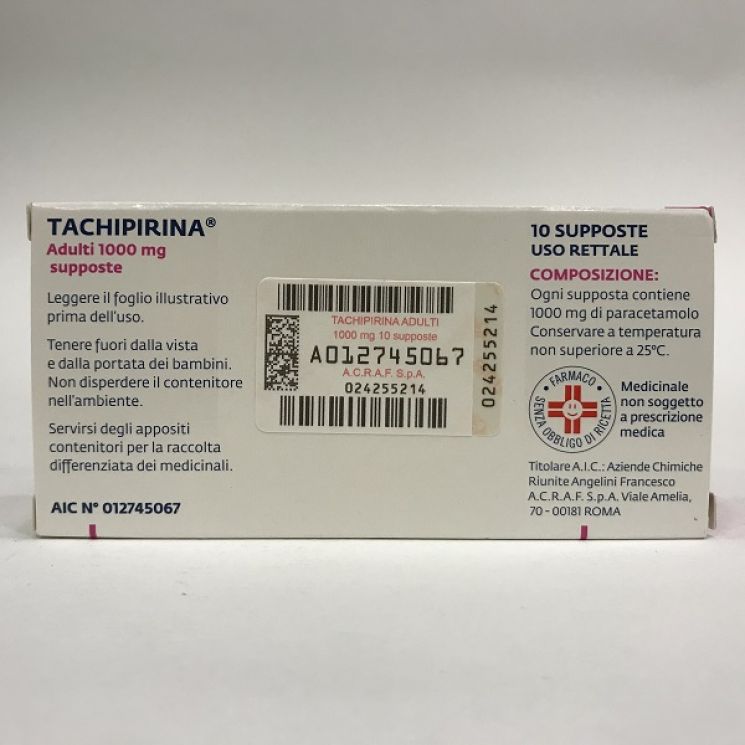
TACHIPIRINA 1000 mg supposte. Tachipirina contiene paracetamolo, farmaco usato per trattare la febbre e il dolore. Prodotto da Angelini Pharma, Italia Foto stock - Alamy

PARACETAMOL Ratiopharm 1000 MG SUPPOSTE PER ADULTI - 10 PZ - Erbofarma farmaci, generici, omeopatici e integratori alimentari

Foto Stock Italy – february 7, 2022: box of TACHIPIRINA 1000 mg suppositories. Tachipirina contains paracetamol, medication used to treat fever and pain. Manufactured by Angelini Pharma, Italy | Adobe Stock

TACHIPIRINA 1000 mg supposte. Tachipirina contiene paracetamolo, farmaco usato per trattare la febbre e il dolore. Prodotto da Angelini Pharma, Italia Foto stock - Alamy
























